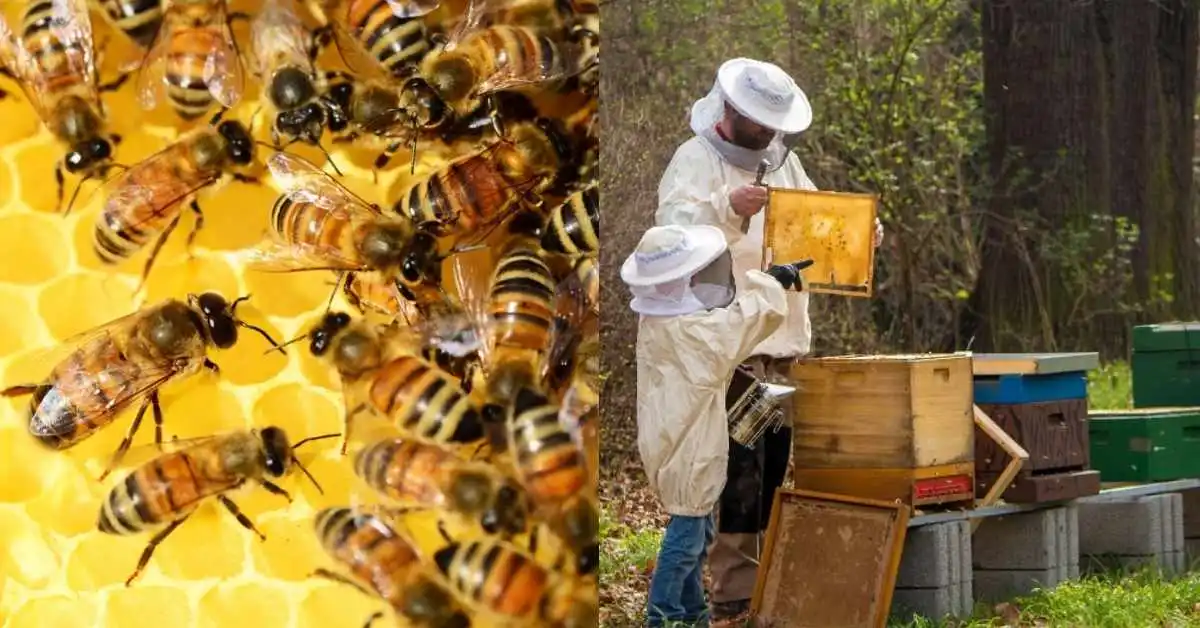🍯 Hope, Honey, and Hard Truths: Inside Asheville’s Sweetest Comeback After Disaster
On June 8, Highland Brewing in Asheville, NC, buzzed with life as hundreds gathered for the Fourth Annual Honey Festival — a celebration of bees, honey, and resilience. Attendees in “pollinator-themed” costumes danced to live music by Queen Bee and the Honey Lovers, sampled local honey, and donated to the Center for Honeybee Research, supporting vital pollinator recovery.
But just nine months ago, this same joyful venue had closed its doors indefinitely after Hurricane Helene devastated Western North Carolina — displacing families, damaging infrastructure, and wiping out over 500 bee hives, according to NC State University.
“It’s important to replenish the bees,” said organizer Jaik Smith. “We lost a significant amount, especially honeybees.”
In response, a wave of grassroots recovery efforts spread across the state. From Wake County to Moore County, volunteers came together to build hundreds of new hives and launch re-colonization projects. One such group, the Ashe County Honeybee Recovery Project, assembled 300 hives and 4,000 frames in a single weekend.
Even strangers stepped in. Charles Siers and his family drove from West Virginia to donate a dozen “nucleus hives” they built in their backyard woodshop. “My heart just broke for you guys,” he said.
“The storm took so much from us,” said TCBA President Debbie Griffith, “but it made us stronger with all the good that came afterward.”
🐝 The Other Side of the Story: A Pollinator Paradox
As uplifting as the honeybee recovery efforts are, experts caution that not all bees are created equal — and honeybees, specifically, come with their own set of complications.
Though essential to large-scale agriculture, honeybees are not native to North America, and they can outcompete or spread disease to the continent’s 4,000+ native bee species, many of which are already in decline.
“In high densities, honeybees can have negative impacts,” said Rich Hatfield of The Xerces Society on their Bug Banter podcast.
Yet the current food system — particularly fruit, nut, and vegetable farming — is built around their presence.
“Our agricultural model depends on honeybees,” Hatfield added. “But it doesn’t have to be that way. If we think more sustainably, native bees could do so much of the work.”
The takeaway isn’t to vilify beekeepers — far from it. Hatfield calls instead for open dialogue and cooperation between conservationists and agricultural communities.
🌼 What Can You Do?
Whether you support honeybee rescue, care about native biodiversity, or simply want to help pollinators, the solution may be in your backyard.
“Grow native flowers,” Hatfield said. “The messier, the better. Make a space for wild bees.”
From festivals to fieldwork, the post-Helene recovery shows how collective action can create real buzz — but the bigger picture still needs clarity and compassion.
Celebrate the bees. Support your local beekeepers. And plant a patch of wildflowers — nature will thank you.
